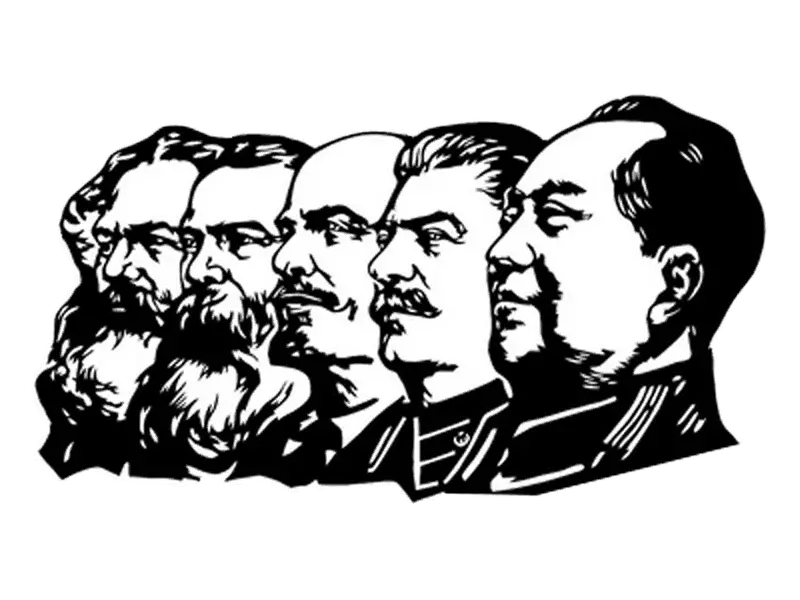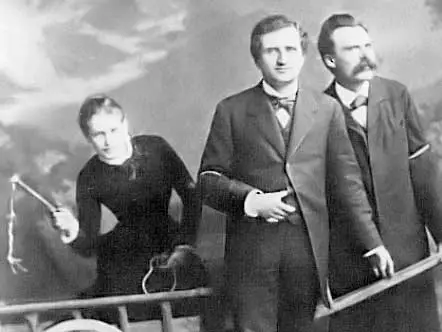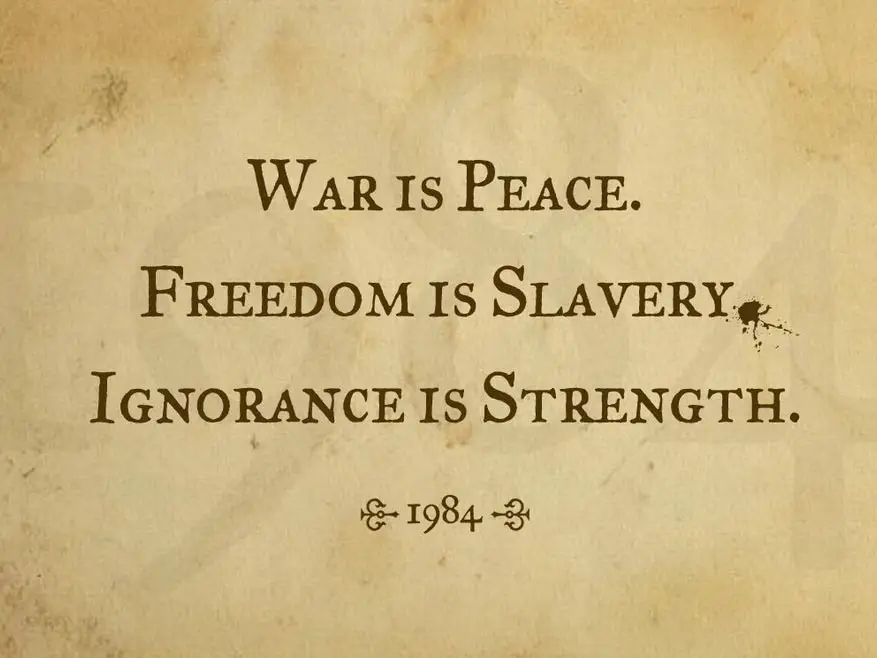The Trolley Problem (and communication theory)

Ok, so no philosophy-oriented website would be complete without the Trolley Problem. Though one should already ask themselves whether it is even possible to have a complete philosophy website – in the sense of both, that completeness and website are mutually exclusive, and that philosophy rejects the very notion of completeness in the first place. I digress, and perhaps this is something to come back to in another post. Let me focus on the problem at hand – the speeding trolley and hard ethical decisions.
What Is The Trolley Problem?
“The Trolley Problem” (or “The Trolley Dilemma”) is a thought experiment proposed by the British philosopher Philippa Foot in her paper entitled ‘The Problem of Abortion and the Doctrine of the Double Effect’. Since Foot’s publication in Oxford Review in 1967, a number of other hypothetical scenarios have been proposed by philosophers and others alike – some of serious nature and some for comedic purposes. Whether serious or comic (or indeed tragic), each thought experiment has a number of similarities. The essence of the trolley problem is to present an extreme scenario that puts our ethical principles to the test. The original thought experiment is described by Foot as follows:
Suppose that a judge or magistrate is faced with rioters demanding that a culprit be found for a certain crime and threatening otherwise to take their own bloody revenge on a particular section of the community. The real culprit being unknown, the judge sees himself as able to prevent the bloodshed only by framing some innocent person and having him executed. Beside this example is placed another in which a pilot whose airplane is about to crash is deciding whether to steer from a more to a less inhabited area. To make the parallel as close as possible it may rather be supposed that he is the driver of a runaway tram which he can only steer from one narrow track on to another; five men are working on one track and one man on the other; anyone on the track he enters is bound to be killed. In the case of the riots the mob have five hostages, so that in both examples the exchange is supposed to be one man’s life for the lives of five.
Foot, P. (1967). The Problem of Abortion and the Doctrine of the Double Effect in Virtues and Vices. Original publication in Oxford Review, Number 5. – PDF available here.
Foot’s original publication may have gone unnoticed if it were not for Judith Jarvis Thomson’s later publication in The Monist in 1976. Thomson scrutinised Foot’s thought experiment and was among the first to propose a variation of what has now become a popular meme. She revisited the trolley problem once again in 1985 in the Yale Law Journal in a paper with the rather appropriate title: ‘The Trolley Problem’, where she expanded on the previous work by Philippa Foot and her own views expressed in the 1976 publication. Here is a relevant excerpt:
Suppose you are the driver of a trolley. The trolley rounds a bend, and there come into view ahead five track workmen, who have been repairing the track. The track goes through a bit of a valley at that point, and the sides are steep, so you must stop the trolley if you are to avoid running the five men down. You step on the brakes, but alas they don’t work. Now you suddenly see a spur of track leading off to the right. You can turn the trolley onto it, and thus save the five men on the straight track ahead. Unfortunately, … there is one track workman on that spur of track. He can no more get off the track in time than the five can, so you will kill him if you turn the trolley onto him (Thomson 1985, 1395).
Thomson, J.J. (1985). The trolley problem. Published in The Yale Law Journal, Number 94, pp. 1395–1415. – PDF available here.
The Trolley Problem would not be a problem if it did not demand its audience to question their moral principles. The upshot is, being the driver of a runaway trolley/tram, do you:
a. do nothing and let the trolley/tram crush the five people? or,
b. steer from one track to another, and subsequently kill one person?
Answers to The Trolley Problem
So this is the trolley problem in a nutshell, though anyone familiar with the popular memes would also be familiar with the thought experiments. What is more interesting are the answers that one can choose from. Because while there are seemingly only two choices (do nothing and kill five, or act and kill one), the rationale behind each choice gives us a better insight into our ethical principles – and indeed, demands that we revalue our already extant values.
Below you can find five choices. Each of these choices is based on one of the two choices given above; however, it is followed by reasons why the (in)action took place. This is not a test which has to be taken quickly. Take the time and think about each of the answers carefully. Once you have found a reason that seems closest to you, click or tap the answer to see which ethical paradigm best describes your choice.
- Steer the trolley away from five and kill one person, because it is better that five people live than one. By doing so, I maximise the happiness and well-being of more people.
- Steer the trolley away from five and kill one person, because that is the right thing to do irrespective of well-being of others. Saving five lives is not about happiness or well-being, it is simply the kind of thing a virtuous person would do.
- Do nothing and let five people die, because steering the trolley would amount to actively killing someone, which is inherently wrong. Anyway, it is possible that something else may happen and the trolley will not kill the five people on the track.
- Do nothing and let five people die, because that is what all religions of the world teach. The Ten Commandments (and their equivalents) explicitly states ‘Though Shall Not Kill!’ and steering the trolley is precisely that: killing.
- Do nothing and let five people die, or steer the trolley away from five and kill one person – this is not a ‘choice’ that can be made sincerely. The ‘choice’ depends on our cultural upbringing and education and varies between different communities of people.
1. Steer the trolley away, because the happiness and well-being of more people outweigh those of one.
This answer corresponds with the ethical paradigm of UTILITARIANISM

Utilitarianism according to John Stuart Mill
Utilitarianism is an ethical theory that follows the ‘happiness principle’ – it is the belief that, when faced with a choice between different kinds of action (or inaction), one should opt for that action which is most beneficial to the greatest number of people, or for that action that reduces harm to ourselves or others. In Mill’s own words: “actions are right in proportion as they tend to promote happiness, wrong as they tend to produce the reverse of happiness. By happiness is intended pleasure, and the absence of pain; by unhappiness, pain, and the privation of pleasure” (cf. Utilitarianism by John Stuart Mill). Early Utilitarians looked at happiness as the sole criterion when considering what is beneficial. They thus considered the ‘happiness principle’ to be: the greatest happiness for the greatest number of people. The definition of happiness has been broadened by contemporary scholars who consider themselves to be Utilitarians.
Furthermore, for John Stuart Mill, unlike his teacher Jeremy Bentham, there are qualitative differences, not only quantitative ones. That is to say that greatest pleasure for the greatest number does not mean that we should accommodate watching TV and drinking beer because that is more pleasurable to most, and instead attend to more virtuous pursuits, such as solving mathematical problems and helping others. Simple pleasures or sensual pleasures are not just as good as more sophisticated and complex pleasures. If the former was the case, then as Mill notes, a dog’s life would the same as that of a human – harming a puppy would be of no moral difference than harming a baby. Or as one philosopher put it, it is fundamentally different if I accidentally step on a slug than if I accidentally step on a baby. In other words, Mill’s variation of the Utilitarianism seeks to improve on the greatest happiness principle by attending to these rather intuitive points.
Which is not to say that Mill simply exclude simple pleasures; quite the contrary he does advocate for pleasures of all kinds. He just thought that once one knows of higher pleasures, they will opt for that kind of pleasure over the other.
Utilitarianism is a consequentialist ethical theory. That is to say, it looks at ethics from the position of consequences of actions rather than whether actions themselves are worthy of ethical consideration. For example, The Ten Commandments look at actions themselves as worthy of ethical analysis, wholly disregarding the consequences. Murder and theft are never justifiable, because the action itself is condemned independent of the consequences. Utilitarians look at consequences of theft (e.g. starvation vs luxury) when considering whether an action is morally permissible.
Utilitarianism and Communication Theory
Technological progress has substantially changed the nature and value of communication over the past few decades. Especially the use of internet as the medium of different forms of communication (e.g. chatting, social media, VOIP, blogs, etc.), has given an opportunity to a large majority of people of the globe to make themselves heard – either through directly publishing or through commenting and sharing. Nevertheless, while most of us would consider the rise of internet as overall a beneficial development, it does pose a philosophical problem. Consider the following: because Utilitarians look at consequences of actions, they do not necessarily disapprove of such actions as lying. Lying to friends and family in order to avoid embarrassment or a scandal is permissible as long as the happiness principle applies (note that this is only true for ‘act utilitarians’, ‘rule utilitarians’ may have a different opinion). Such an easy analysis, however, becomes more complicated when the medium of communication changes from direct speech to public announcements on social media. The consideration is no longer about the direct family and friends, but reaches a wider audience. Furthermore, direct communication through speech conveys more than words from a screen – our tone, the close relationship and the use of words, the underlying intent and familiarity, body language, etc. disappear when using internet as the medium of communication. To be sure, the wider use of videos online does mitigate some of these issues; nevertheless, some of these (familiarity, close relationships, etc.) remain an issue with communication theory.
2. Steer the trolley away, because saving more lives is not about happiness or well-being, it is simply the kind of thing a virtuous person would do.
This answer corresponds with the ethical paradigm of VIRTUE ETHICS

Virtue Ethics according to Aristotle
Most contemporary ethical theories (and people more generally) look at either actions or their consequences when considering the moral value of an action. Virtue Ethics is an ethical theory that does not look at action as such, instead the consideration is on the character of the actor. The main source for Virtue Ethics remains the classic written 2500 years ago, Aristotle’s Nicomachean Ethics. Unlike Plato before him, Aristotle was very much grounded in the actuality of Greek life and approached his subject matter (ethics in this case, but more philosophy more widely as well) through what he observed to be the case. That is why Raphael’s famous fresco The School of Athens (above) depicts the two philosophers pointing to the sky and earth respectively.
One of the observations Aristotle makes is that human beings aim not just to live, but to live well. ‘Living well’ in this context is quite an important difference from bare life, which has grave implications on our moral outlook at life. The main concern is precisely that which sets it apart from other ethical theories, namely that the abstract conceptions of ‘what is good?’ and ‘what is just?’ (i.e. Plato’s considerations), have little value without a direct relation to what is happening in the city-state. Aristotle was, in other words, more interested in how one could become a good citizen and do good deeds instead of what the nature of ‘the good itself’ would be. And he believed that in order to foster good citizenship, one ought to foster good character in the city’s population.
Virtue for Aristotle is all about finding the right balance between what is innate to us and what is reasonable. A virtue is a trait of character that one should aim to excel in, it is an ability to exhibit certain traits when they are needed, and to wisely choose from them. The main virtues for Aristotle were: justice, courage, temperance, magnificence, magnanimity, liberality, gentleness, prudence, wisdom. Wisdom is also one of the more important virtues, because it is through wisdom that one can choose when to be courageous – is it really courage to be a lone soldier and face an enemy squadron with nothing but a stick, or is that foolhardiness? “To possess a virtue is to be a certain sort of person with a certain complex mindset” (cf. Hursthouse & Pettigrove Virtue Ethics).
Virtue Ethics and Communication Theory
There are generally two ways to look at virtue ethics and communication. One way to look at it is that good character does not amount to much in our communication at all. What is conveyed through speech or another medium cannot tell us what kind of character someone is. Good character is observed through repetition. Communication is viewed as a means to attain an end. In such circumstances, virtue ethics cannot deal with the contemporary ideological framework of profit driven corporations – what matters is not the character, but the direct output that can be linked to profit/loss. The same reasoning could be applied to internet, where a character cannot be established from a comment or a blog. All of this is to say that virtue ethics is viewed as inconsequential and therefore also irrelevant to communication theory.
Another way to view virtue ethics is to stipulate the strengths of disregarding consequences. Where corporations look at profit and loss, it is good to point out the importance of healthy relationships with business partners. The value of an employee certainly depends on their output; however, the measure of output is more than profit and loss. There is value in building rapport with clients and colleagues, there is value in acting justly in dispute resolution, there is value in temperance rather than rushing into sales at the cost of future business relations. Good character, in other words, is not only displayed in direct results, but in the value of the person to the corporation as a whole.
Notwithstanding, the wider use of internet leads to disappearance of character from communication too. Because the use of internet puts certain aspects of communication into jeopardy – such as our tone, close relationship, the underlying intent and familiarity with words, body language, etc. – the good character of the person is not as easily distinguishable. Virtue Ethics thus faces a similar shortcoming as Utilitarianism in communication theory: while communication has become more efficient, it is not necessarily more effective.
3. Do nothing and let five people die, because steering the trolley would amount to actively killing someone, which is inherently wrong.
This answer corresponds with the ethical paradigm of DEONTOLOGY

Deontology according to Kant
Deontology is an ethical theory that focuses on the actions themselves, instead of their consequences. It is often described as duty based ethical theory because at the core of deontology is the notion of obligation to follow rules and/or laws. According to Kant, there are two kinds of rules that human beings follow. He divides them according to ‘categorical imperative’ and ‘hypothetical imperative’. The hypothetical imperative applies to cases where someone wishes to attain an end. For example:
If I want to quench my hunger and thirst, I must drink and eat something.
By contrast, a categorical imperative is unconditional and does not have an end directly in sight. It is a rule that must be followed under all circumstances. To put it somewhat philosophically, a categorical imperative is an end in itself. Kant gives three different formulations, even though he claims that all three formulations are the same. Nevertheless, the most widely known formulation of the categorical imperative is the first:
Act only according to that maxim whereby you can, at the same time, will that it should become a universal law.
The reason the categorical imperative or duty based ethics/deontology became so popular after Kant can be traced back to the popularity of Utilitarianism of Mill. Deontological ethics expresses deep dissatisfaction with Utilitarianim and its popularity in the middle of 19th Century. Utilitarianism cannot adequately deal with selfishness or immorality more generally. Essecially, deontologists are asking how it is possible that there is murder, there is theft, there is adultery – how is this a moral system if we see these on a daily basis?
In Kant’s view, an ethical theory should eb founded on unconditional rules that settle what is and what is not morally acceptable. Where a Utilitarian would posit that theft is wrong because it does not maximize good for those involved (i.e. look at the consequences of an action); for Kant, consequences and the good are quite irrelevant to those whose sole purpose is to enrich themselves. In other words, Utilitarianism is an ethical theory that is only ‘hypothetical’. What is required is an ethical theory that is ‘categorical’. For this reason, Kant’s ethical theory is deontological precisely because at its core are rules and not people’s desires.
I should also quickly point out that next to the categorical imperative (i.e. following rules), Kant insists on consistency and not falling into contradiction. Kant specifically uses the word rationality here, and he means that if we are rational human beings we will follow the rule that is the categorical imperative: Namely, we will only act in such a way that can be universalised. You may wonder what the relation between the categorical imperative and consistency is. Fortunately, the trolley problem is a rather good illustration of this.
In the case of the Trolley Problem, we are essentially concerned with death and murder – or as we put it initially, as actively killing someone. Saying that it is fine to murder would, according to Kant, eventually lead to a contradiction. Why? Because the notion of murder presupposes that there are living human beings. If we were to act in such a way as to make our actions a universal law, we would disregard the very notion of living human beings: If murder was universalised, there would be no human beings left.
Deontology and Communication Theory
Communication today is unavoidably linked to technological progress: radio and television, mobile phones, internet, satellites, etc. The increased use of communication through these means instead of direct communication can put deontological ethical thinking into jeopardy. For one, direct communication is not always possible – human beings need to eat, sleep, and are limited to a particular space. With the rise of telecommunication (literally, communication from afar), we face new challenges: communication can be stored for later use in form of a blog post or comment, voicemail or tape recording. The challenge here is precisely how such communication can benefit us instead of impede us. Plato famously points out (in the 7th letter) that all that he has written is not precisely his view because the view of an author can only be precisely communicated in person.
Next to this challenge, there are also significant issues with regards to intellectual property that dominates contemporary news agencies. Where written work in the past could be directly linked to a person’s interllectual property, with the rise of internet this is no longer obvious. Is a novel idea expressed in a comment to be considered intellectual property of the commenter or the website host? What if that idea is a piece of software code that has the potential to significantly reduce costs? Should an explicit statement regarding such issues be made in order to protect intellectual property? etc.
The main issue for deontologists is the lack of clarity on these issues. It should become clear that an ethical system where the core is following rules requires very clear rules to start with. It is a lack of clear rules, a deontologist would argue, that give rise of misuse of itnellectual property. Moreover, when there are no clear rules, a deontologist may avoid participation in communication entirely and focus on other, clearer sources instead (e.g. avoid publishing online and resort to radio/television instead).
4. Do nothing and let five people die, because steering the trolley would amount to actively killing someone, which is condemned by all religions of the world.
This answer corresponds with the ethical paradigm of DIVINE COMMAND THEORY

Divine command theory and ethics
At the core of divine command theory (or theological voluntarism) is coherence with God’s laws. Whether an action is ethical thus also depends on whether that action does or does not coincide with God’s will. That is to say that the will of God is known and our actions are meant to coincide completely with the will of God.
While there are numerous variants of the divine command theory dependent, on both the theologians and philosophers in question, as well as particular time frame in history, they all share two aspects in common:
- Morality cannot be established independent of God – what is moral is entirely determined by God. There is a causal relation here: an action is good as a result of God’s command.
- The former also implies that religious piety is equivalent to being moral. A stronger variant of this claim is that not being religious and indeed not being in full accord with God’s commands results to not being moral.
The differences between theologians vary as much as those between the philosophers; and giving an overview of these differences is not particularly helpful. Generally speaking, however, differences arise on the extent of coinciding with God’s will. For example, the medieval theologian / philosopher Thomas Aquinas is not directly advocating for a divine command theory. Nevertheless, he does propose a theory of natural law which strongly resembles and indeed can certainly be viewed as divine command. In short, for Aquinas an action is considered moral as long as it promotes humanity and is in accordance with ‘human nature’. From a theological perspective, being in accordance with ‘human nature’ must also mean being in accordance with ‘God’s will’ – because it is God who created human nature in the first place.
Objections to Divine Command Theory
While each ethical theory has its objectors, ethical command theory is one where objections are rooted in the core of its principles instead of details.
- On the first point of the causal relation – that actions are good as a result of God’s command – the objection is raised as early as Ancient Greece. Indeed, the objection itself is rather intuitive: To put it differently, is an action good because it is commanded by God, or is an action commanded by God because it is good? In philosophy, this is known as the Euthyphro dilemma. The dilemma is not merely philosophical however, and poses a serious complication to divine command theory: if an action is good because it is commanded by God, then we must concede that any action commanded by God must be good (e.g. the many demands to kill offspring); and if an action is commanded by God because the action itself is good, then we have no need for divine command theory – after all, in such a case God’s command is independent of the action.
- This leads us to the second point, that of religious piety. We have to ask here: what happens to irreligious people, atheists, believers in other religions, and indeed ‘casual’ believers who, say, do not attend Church or do not follow all of God’s laws? Divine command theory entails that morality coincides with God’s laws, which does not leave any room for loosely interpreting these laws. What is more, the action becomes immaterial to morality. Instead, what dictates the moral character of action is whether it was enacted by someone who believes in God or not. Identically the same action done by a religious person and an atheist would result only in the former being moral and the latter not. Understandably, this is rather dubious and divine command theory has to come to terms with this.
In the case of the Trolley Problem, and just as with Deontological ethics, we are essentially concerned with death and murder – with an active participation of killing someone by pulling a lever. Though this remains very debatable withing theological circles, God’s laws clearly forbid an action that would kill someone. There are, of course, examples abundant where legally there is a difference (e.g. self-defence). When it comes to God, it is less clear when active participation in killing someone else is to be understood as part of God’s command.
Divine Command and Communication Theory
As mentioned earlier, divine command theory is not limited to one religion. There are many religions and innumerabe denominations, all of which claim different (and even contradictory) commands to stem from God. Just from a dietary perspective for example – are we not to eat pork, beef, some of the seafoods, any animals at all? The answer to this naturally depends on which ‘God’ is believed to lay down the law. Communication should therefore always remain open between religions and require tolerance and sensitivity. This is not to say that to communicate effectively we ought to mask our views; quite the opposite, divine command theory should make it clear that most people are likely not to share our views and it is our responsibility to make these views clear to them.
5. ‘Do nothing and let five people die’ and ‘steer the trolley away from five and kill one person’ is not a ‘choice’ that can be made sincerely. The ‘choice’ depends on our cultural upbringing and education and varies between different communities of people.
This answer corresponds with the ethical paradigm of ETHICAL RELATIVISM

Ethical relativism generally has two forms that are often conflated. On the one hand, relativism is thought be a lack of moral values entirely. Morality is understood as a fiction that is created to keep people from murdering one another and is not otherwise rooted in anything else than continued subjugation. This view of relativism holds that there are no moral standards as such. On the other hands, relativism is viewed as a theoretical position that morality is not something universal and universally applicable or transferable. Morality is understood as culturally and historically developed by and for a particular people.
While the two views are not mutually exclusive, there is nevertheless a significant difference between them. First, the former expression presupposes that moral views can be stood aside from – that someone can claim to stand outside of a moral perspective, to have an overview without themselves being part of the moral ‘laws’ of the group. No such claim is made in the latter expression of relativism. Second, the latter view does not claim that there are no moral standards as such, but merely that these standards differ between peoples. In other words, the former view is a stronger and perhaps even more crude expression of the latter view.
To my knowledge, there is no serious ethicist or moral philosopher who holds the former view, while the latter view could be attributed to some of them. While it has become a trope to equate relativism to a lack of objective ethical or moral standards, bar a few exceptions, hardly any philosopher ever held this view completely. The persistence of complete ethical relativism has more to do with misunderstanding or careless and incomplete reading. For examples, ethical relativism has often been attributed to Friendrich Nietzsche and his alledged immorality. It is true that Nietzsche did, on a few occasions, call himself an immoralist. However, it is abundantly clear from his body of work that, with the fall of Christianity, he was advocating for new grounding of morals and not their lack of. After all, if morality is based on Christianity and God, then with the ‘death of god’ we would need to find a new basis for morality. We can discern here a closer association with the latter expression of ethical relativism than with the former.
Based on these two forms of ethical relativism, the Trolley Problem suggests that either:
- the ‘choice’ of doing nothing or steering the trolley away is inconsequential to our being as such – that this problem is not a moral one and has more to do with with rule and domination than inherent human values; or
- the ‘choice’ of doing nothing or steering the trolley away highly depends on the contemporary moral principles and our attachment to one ‘choice’ or the other cannot be understood as eternal or even a correct one.
Ethical Relativism and Communication Theory
Understanding the role of relativism in communication is a difficult task; what is even more difficult is the ability to utilise that understanding in communication. Because peoples across the world are very different from one another as well as the wide diversity within groups of peoples, communication is not always as clear as we intend it to be. In moral and political philosophy, communication thus plays a crucial role in overcoming differences and not succumbing to violence – for example, the role of speech in Hannah Arendt or deliberation in Jürgen Habermas.
With the rise of Internet and many services for communication that came with it (chatting and messaging software/apps, VOIP services and naturally websites, etc.), relativism starts playing a more decisive and a more divisive role than previously understood. Naturally, these online services trascend continents and cultures. Numerous scandals about the use of personalised data to target communication have made the issue more accute. At the core of communication, however, remains the old liberal struggle between freedom of speech and harm. As addressed by John Stuart Mill in On Liberty, freedom of speech should never be curtailed unless it may directly result in harm of others (and in turn curtail the freedom of others). Both forms of relativism discussed above, pehaps inadvertedly, underscore the freedom of speech over harm. This is also the case with online communication, where only recently more emphasis is being placed on what is acceptable and non-harmful way of communication. How online services are going to deal with the presence ethical relativism across cultures – and indeed whether we ought to deal with ethical relativism at all – is something to be seen.
Bibliography – recommended books on ethics

- Barcalow, E. (2007). Moral Philosophy: Theories and Issues, Belmont: Wadsworth.
- Cathcart, T. (2013). The Trolley Problem, or Would You Throw the Fat Guy Off the Bridge?: A Philosophical Conundrum, New York: Workman Publishing.
- Edmonds, D. (2015). Would You Kill the Fat Man?: The Trolley Problem and What Your Answer Tells Us about Right and Wrong
- Foot, P. (1978). The Problem of Abortion and the Doctrine of the Double Effect in Virtues and Vices. In Virtues and Vices and Other Essays in Moral Philosophy, pp. 19-32. Oxford: Basil Blackwell.
- Kagan, S. (1991). The Limits of Morality, Oxford: Oxford University Press.
- Kamm, F.M. (1989). Harming Some to Save Others, Philosophical Studies, Number 57, pp.227-60.
- Kamm, F.M. (2016). The Trolley Problem Mysteries, Oxford: Oxford University Press.
- Sharp, F.C. (2009). A Study of the Influence of Custom on the Moral Judgment, Cornell University Library.
- Sharp, F.C. (1928). Ethics, New York: The Century Co.
- Thomson, J.J. (1976). Killing, Letting Die, and the Trolley Problem, The Monist, Number 59, pp. 204-17.
- Unger, P. (1996). Living High and Letting Die, Oxford: Oxford University Press.
Bibliography – recommended online resources
- Author Unknown. Should You Kill the Fat Man? Philosophy Experiments.
- Cloud, J. (2011). ‘Trolley Problem’: Virtual-Reality Test for Moral Dilemma. – TIME.com.
- Feldman, B. (2016). The Trolley Problem Is the Internet’s Most Philosophical Meme. New York Media.
- Foot, P. (1967). The Problem of Abortion and the Doctrine of the Double Effect in Virtues and Vices. Original publication in Oxford Review, Number 5. – PDF available here.
- Khazan, O. (2014). Is One of the Most Popular Psychology Experiments Worthless?. The Atlantic.
- Pegoda, A.J. (2017). The ‘Trolley Problem’ is Fundamentally Flawed. AndrewPegoda.com.
- Raicu, I. (2016). Modern variations on the ‘Trolley Problem’ meme. Vox Media.
- Rennix, B. & Robinson, N.J. (2017). The Trolley Problem Will Tell You Nothing Useful About Morality. Current Affairs.
- Singer, P. (2005). Ethics and Intuitions The Journal of Ethics. – PDF available here.
- Thomson, J.J. (1985). The trolley problem. Published in The Yale Law Journal, Number 94, pp. 1395–1415. – PDF available here.
- Zhang, L. (2016). Behind the Absurd Popularity of Trolley Problem Memes. TheHuffingtonPost.com.







